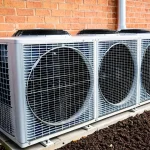Proven Strategies to Reduce Swimming Pool Energy Use in the UK
Small text: Practical steps to boost efficiency and lower costs
To achieve UK swimming pool energy savings, prioritizing actionable steps that immediately cut consumption is essential. One of the most effective strategies is optimizing the pool pump operation. Running the pump during off-peak hours with a timer or switching to a variable speed pump can reduce electricity usage significantly. This approach alone helps reduce pool running costs by up to 50% for many UK homeowners.
In the same genre : Unveiling revolutionary robotic pool cleaners tailored for uk pools: essential innovations you can’t miss!
Another practical method is improving filtration efficiency. Using low-energy pool filters that require less power and cleaning frequency not only saves energy but also lowers chemical use. Additionally, ensuring that the pool’s heating system operates efficiently—by setting thermostats wisely and maintaining equipment—plays a key role in lowering energy bills.
UK pools face unique challenges due to the cooler climate and shorter daylight hours, which often means longer heating periods and less reliance on solar options alone. Seasonal factors influence energy use patterns and should be considered when planning efficiency improvements.
Also to discover : Transform your uk garden retreat: innovative water feature inspirations to enhance your swimming pool experience
Typical cost savings from implementing energy-saving measures in the UK pool sector can range from 20% to 60%, depending on the combination of tactics employed and the pool system’s baseline efficiency. Focusing on these efficient pools UK strategies ensures not only lower utility bills but also contributes to environmental sustainability.
Upgrading to Energy-Efficient Pool Equipment
Key investments for lowering energy bills and boosting performance
Replacing outdated pool equipment with energy-efficient pool pumps and low-energy pool filters is one of the most impactful ways to reduce pool running costs. In the UK, using variable speed pumps has become increasingly popular due to their ability to adjust motor speed according to filtration needs, significantly lowering electricity use compared to traditional single-speed pumps.
How much can UK homeowners save with these upgrades? Typically, switching to a variable speed pump can reduce energy consumption by 30% to 70%, dramatically cutting electricity bills. Payback periods often fall between 2 and 4 years, depending on electricity rates and usage patterns. Pairing pumps with efficient low-energy filters further enhances savings by reducing the workload on the pump and extending periods between cleanings.
Several reputable brands, including ones well-established in the UK market, offer models tailored to local conditions and regulatory requirements. These products are designed to withstand cooler climates while maintaining optimal flow rates. For efficient pools UK-wide, investing in advanced pump technology coupled with modern filtration systems provides both immediate and long-term benefits, combining energy savings with improved water quality and user convenience.
Smart Heating Solutions and Alternatives
Sustainable and cost-effective options for UK pools
For UK pool owners seeking to optimize heating efficiency, pool heat pumps UK and solar pool heating UK systems are among the top solutions. Unlike traditional gas heaters, pool heat pumps extract ambient air heat to warm the pool water, offering impressive energy efficiency and lower operating costs. Typically, heat pumps consume roughly 65% less electricity than gas heaters, leading to significant UK swimming pool energy savings over time.
When comparing heating options, solar pool heating UK systems provide renewable energy by harnessing sunlight through solar panels, which is particularly effective during warmer months. Although initial installation costs tend to be higher, operational expenses are minimal, allowing users to recoup investments over several years through reduced energy bills. Using solar heating alongside efficient pool heaters like heat pumps can maximize cost savings while maintaining comfortable water temperatures even during the UK’s cooler seasons.
Maintaining the correct pool temperature is critical to reduce energy use without compromising comfort. Experts recommend setting thermostats between 27°C and 29°C, adjusting down slightly in the off-season. Utilizing digital timers and temperature controls helps ensure the system runs only when necessary, avoiding wasteful energy consumption. Additionally, pairing heating solutions with thermal covers enhances heat retention, further amplifying reduce pool running costs in UK pools.
In sum, adopting pool heat pumps UK and solar pool heating UK technologies, combined with smart management practices, offers a practical path to both environmental sustainability and significant UK swimming pool energy savings. These alternatives represent a forward-thinking choice for efficient pools UK-wide.
Proven Strategies to Reduce Swimming Pool Energy Use in the UK
Small text: Practical steps to boost efficiency and lower costs
To achieve significant UK swimming pool energy savings, the focus must be on immediate actions that directly reduce pool running costs. Adjusting pool pump schedules to run fewer hours and only when necessary can quickly cut energy consumption. Installing timers or smart controllers allows precise control, ensuring pumps operate efficiently without waste. Implementing such strategies often yields a 20% to 40% drop in energy use from pumping alone.
Besides pump operation, improving pool water circulation by regular maintenance decreases strain on equipment, enhancing overall energy efficiency. Water chemistry optimization also plays a crucial role in sustaining system performance without excessive energy demand. In the UK, where seasonal fluctuations mean longer heating periods, coupling these operational changes with targeted heating management becomes essential to sustaining efficient pools UK-wide.
Typical cost savings across these combined efforts range between 20% and 60%, depending on initial system efficiency and homeowner diligence. Smart scheduling, effective filtration, and ongoing maintenance tailored to UK pool environments create a comprehensive approach. This approach addresses the specific challenges posed by the UK’s cooler climate and variable energy tariffs, making it practical and sustainable for homeowners seeking to lower energy bills without compromising pool enjoyment.
Proven Strategies to Reduce Swimming Pool Energy Use in the UK
Small text: Practical steps to boost efficiency and lower costs
To achieve meaningful UK swimming pool energy savings, homeowners must prioritize key actions that immediately reduce pool running costs. One of the most effective measures is optimizing pool pump schedules. Running pumps only during necessary periods, ideally off-peak hours, can decrease electricity consumption by 20% to 40%. Installing timers or smart controllers allows for precise operation control, preventing wasted energy from pumps running unnecessarily.
In addition, maintaining proper water circulation and chemistry directly impacts energy efficiency. Balanced water reduces resistance on pumps and heaters, ensuring systems do not overwork. Regular cleaning of filters and removal of debris lowers strain on the equipment, supporting efficient pools UK by keeping operational needs at a minimum.
The UK’s unique climate further influences energy use. Cooler temperatures demand longer heating periods, which increases energy bills if not managed efficiently. Addressing this requires integrating energy-saving tactics with smart heating controls and insulation solutions tailored to UK pools. Given typical variations in energy tariffs, careful scheduling paired with efficient equipment usage can result in combined savings ranging from 20% to 60% annually.
Implementing these strategies helps homeowners navigate thermal challenges while achieving significant UK swimming pool energy savings, shaping practical, cost-effective methods to sustain efficient pools UK-wide.
Proven Strategies to Reduce Swimming Pool Energy Use in the UK
Small text: Practical steps to boost efficiency and lower costs
Achieving significant UK swimming pool energy savings hinges on targeted actions that immediately reduce pool running costs. Optimizing daily pool pump operation remains crucial, ensuring pumps run only during essential times, ideally off-peak hours. This can achieve a 20% to 40% reduction in electricity usage purely from pumping adjustments. Employing timers and smart controllers further refines this control, avoiding unnecessary runtime and wasted energy.
Regular maintenance practices directly support efficient pools UK by reducing energy demand. Keeping filters clean and water chemistry balanced lowers mechanical strain on pumps and heaters, resulting in less power consumption. Dirty filters increase resistance, causing pumps to work harder and consume more energy. Thus, efficient pool upkeep goes hand in hand with energy savings.
The UK’s distinct climate also affects pool energy use. Longer, cooler seasons require extended heating periods, pushing energy consumption higher. Addressing these challenges means integrating energy-saving measures with smart heating management and insulation strategies specific to UK pools. When combined, these approaches typically yield overall savings between 20% and 60%, reflecting both equipment improvements and operational changes.
Homeowners should consider scheduling filtration cycles strategically around energy tariffs to maximize cost efficiency. Combining this with attentive maintenance ensures that efficient pools UK not only perform better but consume less power, delivering sustained UK swimming pool energy savings throughout the year.
Proven Strategies to Reduce Swimming Pool Energy Use in the UK
Small text: Practical steps to boost efficiency and lower costs
To achieve substantial UK swimming pool energy savings, homeowners should prioritize key actions that immediately reduce pool running costs. One of the most effective strategies involves optimizing pool pump schedules to ensure operation only during necessary periods, such as off-peak hours. This adjustment alone can lower energy consumption by up to 40%. Utilizing timers and smart controllers allows for precise management, preventing pumps from running unnecessarily and wasting electricity.
Maintaining proper water chemistry and circulation is another critical factor. Balanced water chemistry minimizes resistance on pumps and heaters, reducing their workload and energy consumption. Regular cleaning of filters removes debris that can increase mechanical strain, helping to maintain efficient pools UK by keeping equipment operating smoothly and consuming less power.
Unique climatic conditions in the UK directly impact pool energy use. Longer heating periods during cooler seasons lead to increased electricity demand if not managed efficiently. Addressing this requires combining energy-saving tactics with smart heating controls, such as scheduling filtration and heating cycles around variable energy tariffs. Integrating these methods typically results in combined savings of 20% to 60%, depending on initial system efficiency and homeowner diligence.
By focusing on these practical steps, aligned with the UK’s specific environmental and economic context, pool owners can significantly cut energy use while maintaining pool comfort and health. These targeted efforts ensure UK swimming pool energy savings are both tangible and sustainable.









